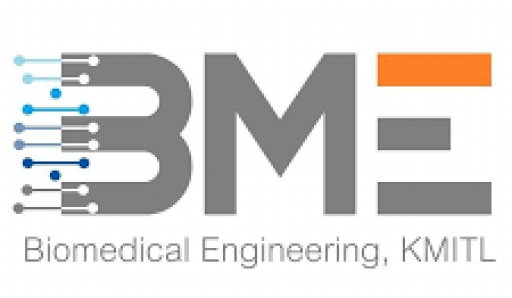Program Structure
The International B.Eng. in Biomedical Engineering program (BME) is a full-time 4-year course. It is suitable for students who are seeking to develop their practical engineering skills related to the design and development of solutions directed toward healthcare applications.
The BME program offers lecture courses and hands-on practical laboratories and projects covering a range of engineering disciplines focused on medical, pharmaceutical, and biological sciences. Students study fundamental mathematics, physics, chemistry, and biology subjects in the first year before focusing on more detailed engineering concepts in the second year. In the third year, students can choose one from three options, each of which has a different emphasis.
1. Biomedical Instrumentation (BMI)
BMI has an emphasis on the maintenance and calibration of medical devices, device administration, and device design and development. Suitable for students interested in electronic and mechanical engineering.
2. Healthcare Information Technology (HIT)
HIT has an emphasis on the storage, retrieval, and analysis of hospital information including data networking, signal and image processing, healthcare robot, healthcare drone, and healthcare smart home. Suitable for students interested in maths, programming, and software engineering.
3. Biopharmaceutical Engineering (BPHARM)
BPHARM has an emphasis on the application of chemical and bioengineering to the development of medicines, biological tissues, biosensors, and bioinformatics amongst others. Suitable for students interested in chemical and bioengineering.
Program Educational Objectives (PEOs)
PEO 1: Graduates practice professionally in the fields of biomedical engineering and closely-related science and engineering disciplines.
PEO 2: Graduates use their knowledge and skills to design or service biomedical-related devices to meet medical needs and constraints.
PEO 3: Graduates use leadership skills and effective communications to work in projects as team leaders and team members in an ethical, professional, and responsible manner.
PEO 4: Graduates advance their career position as professional biomedical engineers in well-established biomedical-related industries.
Student Outcomes (SOs)
B. Eng. in Biomedical Engineering program has adopted the student outcomes from the Accreditation Board for Engineering and Technology (ABET), which are as follows.
SO 1: an ability to identify, formulate, and solve complex engineering problems by applying principles of engineering, science, and mathematics.
SO 2: an ability to apply engineering design to produce solutions that meet specified needs with consideration of public health, safety, and welfare, as well as global, cultural, social, environmental, and economic factors.
SO 3: an ability to communicate effectively with a range of audiences.
SO 4: an ability to recognize ethical and professional responsibilities in engineering situations and make informed judgments, which must consider the impact of engineering solutions in global, economic, environmental, and societal contexts.
SO 5: an ability to function effectively on a team whose members together provide leadership, create a collaborative and inclusive environment, establish goals, plan tasks, and meet objectives.
SO 6: an ability to develop and conduct appropriate experimentation, analyze and interpret data, and use engineering judgment to draw conclusions.
SO 7: an ability to acquire and apply new knowledge as needed, using appropriate learning strategies.
Program Constituencies
– Faculties
– Supporting Staffs
– Alumni
– Employer and Industrial Sectors
Current Industrial Advisory Board (IAB)
Mr. Suwachai Siangoon, Director, Innomove Company Limited, Employer/Industrial Sectors
Mr. Methee Purdthisalikorn, Chief Operating Officer, National Healthcare Systems Company Limited, Employer/Industrial Sectors
Mr. Sakchai Sujai, Director, Treat Med Company Limited, Employer/Industrial Sectors
Mr. Prawee Patanrad, ROSA Clinical Support & Field Service Engineer, Zimmer Biomet (Thailand) Co., Ltd., Alumni/Industrial Sectors
